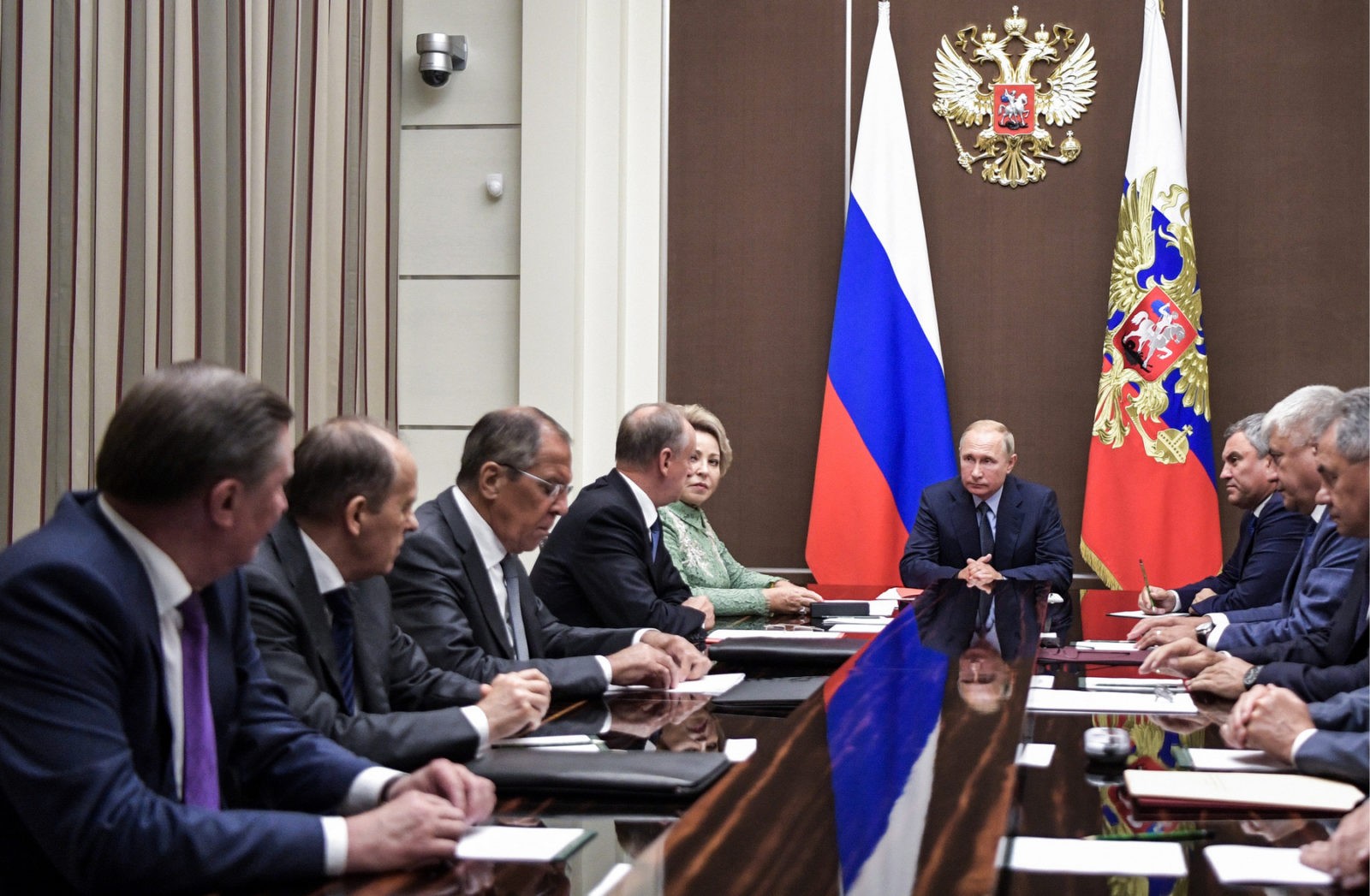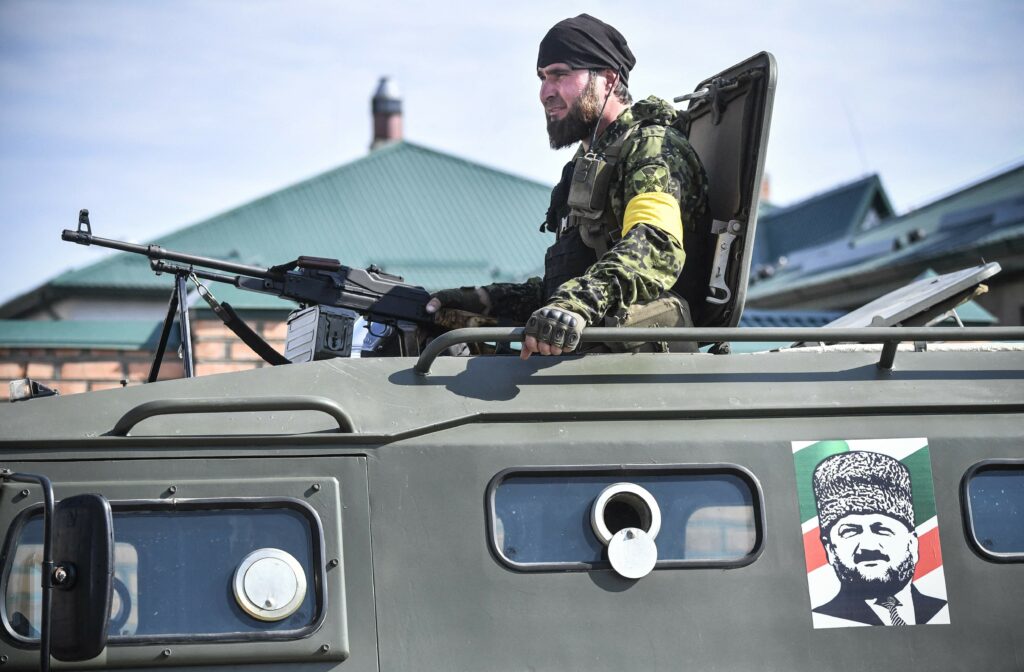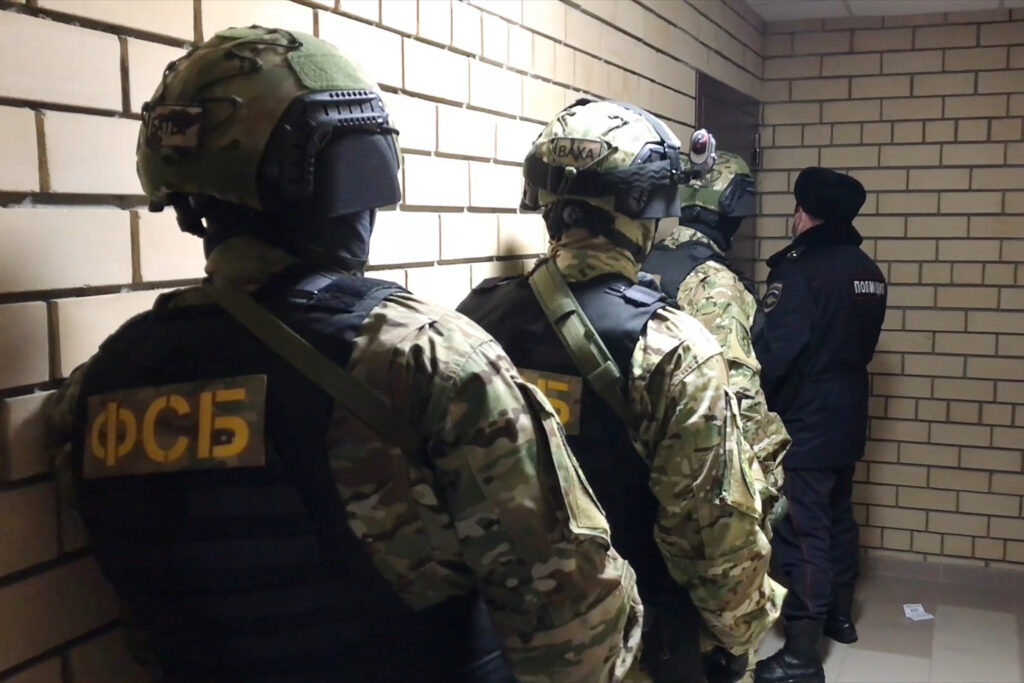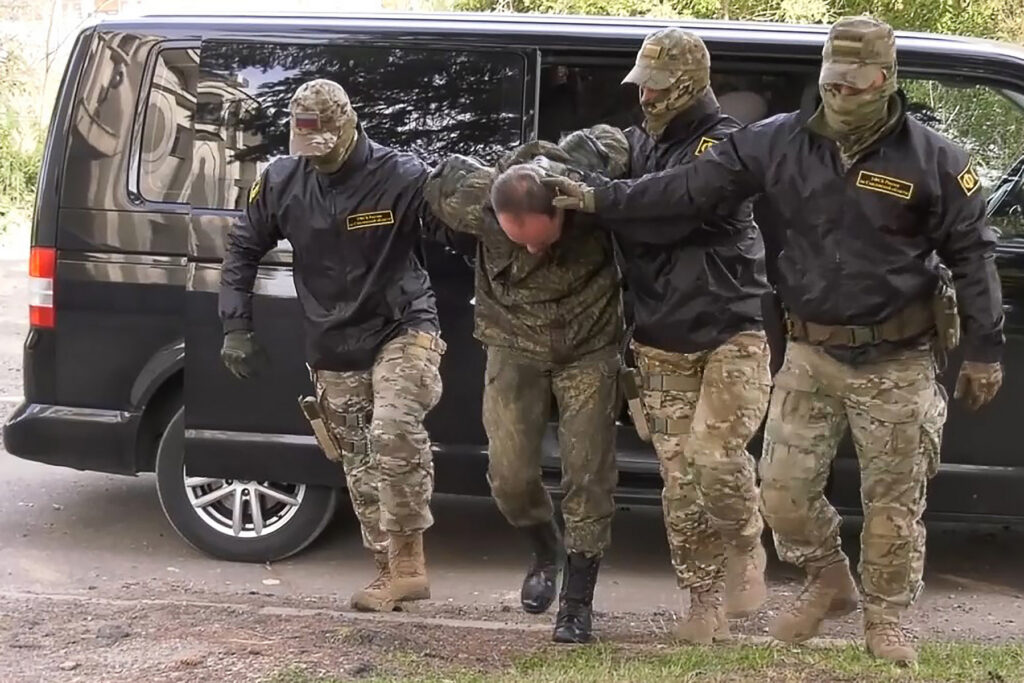At first glance, it seems Russia is quite unlike countries under direct military rule. Russia is not Myanmar, for instance, where 25% of all parliamentary seats to date are occupied by military figures. Even so, a former KGB agent serving as Russia’s president is a sign the country is not a million miles from a ‘Militocracy.’ Politicians, scholars and columnists have, ever since the start of Vladimir Putin’s rule, been highly alert to the governing role of the Siloviki, the sobriquet given to those with a background in the military or the security services.
The events of 2014 and since have made the question of the Siloviki’s influence more pressing, as war rages in Ukraine and Syria. So to what degree can Russia be called a ‘militocracy’?
Not all Siloviki are equal
According to our estimates, 25% of all governors are affiliated with law enforcement agencies in Russia. Their degree of «involvement» varies. It could be a long-term track record of service in the Soviet Armed Forces. It could be backed up with dozens of years of work experience within the agencies themselves. Three ministries are run by people with a military or law enforcement background: The Ministry of Emergency Situations (KGB and FSO), the Ministry of Internal Affairs and the Ministry of North Caucasus Affairs (Armed Forces). Sergey Shoigu, the Minister of Defence, is a civilian, except for his experience in the Ministry of Emergency Situations. Moreover, Yuri Borisov, Deputy Prime Minister for the Military Industrial Complex, is also a security official. 50% of the president’s authorised representatives in federal districts are siloviki (Privolzhsky, North-Caucasian, Siberian, Southern federal districts).
Among the heads of state-owned companies, we have identified five people with siloviki background: Igor Sechin (Rosneft), Sergei Chemezov (Rostech), Nikolai Tokarev (Transneft), Andrei Shishkin (Bashneft), and Sergey Gorkov (Vnesheconombank). All of them were either educated by, or worked for, the KGB. Finally, three presidential aides are siloviki. One of them is the head of the Audit Office, responsible for monitoring the implementation of presidential decisions.
However, when analysing the role of the law enforcement authorities in Russia, it is vital to recognize the dimensions of this state activity. First, Siloviki is a broad collective term. It refers to different, non-integrated state bodies that have keep citizens in check. On the one hand, siloviki refers to the army and the foreign intelligence service, whose main functions are focused outside of Russia. On the other hand, siloviki include the Prosecutor’s Office, the Investigative Committee, the FSB (Federal Security Service), the FSO (Federal Guards Service), the Ministry of Internal Affairs, the National Guard, the Federal Penitentiary Service and other organisations that predominantly enforce official decisions and maintain law and order. Thus, various power structures are different. Not just in their goals, ideology, or methods of work. But also the degree of influence on the society, which makes it difficult to make any analytical generalisations.
Individual representatives of law enforcement agencies also differ. For example, presidential aide Igor Levitin served in the railway troops for 24 years. According to his CV, Levitin worked in railway construction for all his years in the military. The Head of the Udmurt Republic, Alexander Brechalov, served as an officer in the Chkalovsky garrison for two years. Then he became a legal consultant in the business sphere. Finally, the Minister of Emergency Situations Evgeny Zinichev served in the central forces of the KGB and the Federal Guards Service, also among Putin’s personal guards, took courses at the General Staff and, in 2014, served as deputy head of the FSB’s anti-terrorism unit. Formally, all these people can be classified as siloviki. In reality, their experience and knowledge of force-based methods vary.
Given the limits described above, we will apply the logic of social networks. Individual experience of each official is less important than their social ties and backgrounds.
Unexpected management consequences of political decisions
In the history of Russia, the security services have always been assertive. As noted by Olga Kryshtanovskaya and Stephen White, the law enforcement agencies (the Ministry of Internal Affairs, the KGB and the Armed Forces) were among the pillars of Soviet power. But they did not play a decisive role back then. Despite the militarised ideology prevailing in the USSR. Four out of eight members of the State Emergency Committee were indeed siloviki. But, unlike the civilian president Boris Yeltsin, they could not wield power in the confrontation with Parliament in 1993.
After Vladimir Putin came to power, battles began in academia over whether Putin’s regime was militocratic. In 2003, Kryshtanovskaya and White noted that the Yeltsin team saw the successor as a projection of Yuri Andropov. In effect, a «military president» capable of consolidating the state.
The new president won support from his colleagues in St. Petersburg’s city hall, and law enforcement agencies. For example, in 2002, a total of 25% of the elites, consisting of members of the Federal Assembly, the Security Council, the Government and governors, had military education. It was 6.7% in 1993. The largest representation of siloviki was found in the Security Council (58.3% vs. 33.3% in 1993) and in the Government (32.8% vs. 11.4%). An even higher degree of militarisation was found among the president’s plenipotentiary representatives in federal districts. Five out of seven of them were generals. 70% of their deputies and 35% of federal inspectors in the subjects of the Russian Federation were former siloviki. It was the president’s plenipotentiary representatives who were tasked with direct intervention in the regions under the guise of bringing regional legislation in line with the federal one in an increasingly centralised country.

Seeing the establishment of federal districts as a sign of destruction of young Russian federalism and democracy, Nikolay Petrov called Putin’s personnel policy «a peaceful military coup.»
Still, there is no reason to believe that the militarisation of public administration in Russia was purposeful. It was not like, for example, what happened in Latin American countries. Researchers at Hamilton College noted that Kryshtanovskaya and White overstated the figures. They claimed both had accepted and overlooked inaccuracies in the calculations. For example, the decreasing influence of the «parliamentary» siloviki was not factored in. The two chambers of the parliament gradually ceased to play a significant role in the adoption and execution of decisions. Secondly, as noted by Bettina Renz, personnel decisions were only used as tools to achieve a balance of power between interest groups. They were a way of crafting government decisions, whether under Yeltsin or under Putin. There were no established democratic procedures for the formation of the elites. So Yeltsin handed over not only the post of president, but also the ‘handpick’ management system to his successor.
Limited military contingent
The presence of the siloviki among the civil authorities during Vladimir Putin’s first term of office increased. But it would be erroneous to say that Russia has become a militocracy just yet.
As Richard Sakwa argues, Russia is a ‘double’ state, where officials make decisions on the basis of laws. But the informal system is dominated by interest groups, contractual relations and unstable alliances. Thus, the creation of an institutionally stable, homogeneous and influential group sharing the same interests is hard. Above all, the law enforcement agencies are fragmented. Their powers intersect and clash, reducing their ability to cooperate (also for a coup d’état). As a result, «siloviki wars» occur periodically when one agency is trying to substitute or ‘swallow’ another.
Moreover, there is an informal subordination. A young police officer once said in an interview that the Federal Guards Service had announced that if protestors were let into Bolotnaya Square, the presidential guard would shoot to kill. The police officer said, however, with a sense of a hurt: «on the one hand, we were beaten by athletes with chains, and we were standing there so that, on the other hand, the guards didn’t shoot at the children and women standing behind the provocateurs.»
Secondly, each body has different interests that can often be noted in the public actions undertaken by many «own security departments.» One section attacks the disliked representatives of other substructures. This does not mean the latter are not guilty. However, selective law enforcement means that only those who are disliked get punished rather than all offenders.
So, when five Russian generals come together, one will most likely be fired soon, and another one will receive a promotion. And this is exactly what happened at the time when this publication was being written.
Guarding the interests of the capitalist homeland
The special nature of the Russian experience is that people from the law enforcement agencies express their influence indirectly. Often they do so without direct participation in public policies.
It is worth distinguishing the influence of the siloviki on politics (i.e. the struggle for power), on policies and on the redistribution of economic resources. The participation of law enforcement agencies in public power struggles is often tracked. Sometimes the military came to power through elections (Hugo Chávez in Venezuela), through a coup d’état (numerous cases in Peru or Argentina), or by tacitly supporting the civil government (Zimbabwe).
The influence of siloviki on policies and economic processes constrains social equality, economic growth and the effectiveness of public administration. For example, Transparency International believes that every fifth member of the State Duma is a lobbyist of law enforcement agencies. Government spending on those agencies is 11 times as high as health expenditures, while only a third of the budget of those agencies is public.
Finally, the collapse of the USSR and the subsequent redistribution of economic assets created a fertile ground for the once-impoverished «Soviet Union elites.» Daniel Treisman shows that Putin’s coming to power marked the creation of «silovarchs», a special group of siloviki, who have personal ties with the president and who use the methods characteristic of special services to obtain immense wealth. Treisman emphasises, for example, that this was how Viktor Ivanov (KGB) received Aeroflot from Roman Abramovich. Sergei Chemezov (Dresden group) obtained Avtovaz from Boris Berezovsky. And Igor Sechin absorbed Mikhail Khodorkovsky’s Yukos.
Thus, there is no need to appoint siloviki to leading posts in government bodies or major companies. The combination of professional surveillance, compromising evidence, flexible laws and «manual investigators» enables the monitoring of economic and political processes without any direct pressure or formal expropriation, as was the case in Africa and Latin America.
So, if we look at quantitative indicators, Russia cannot be called a militocracy, or a military/low-enforcement-based dictatorship. However, the most recent major study by the Hamilton College offers some disappointing forecasts. The Russian military and civilian elites believe that Russia’s interests are beyond its borders; that the crisis in Ukraine was provoked by the United States; and that the military force is decisive in foreign policy. Moreover, this «militarisation at the top» coincides with siloviki’s influence through key positions and important economic assets: siloviki’s interests can be noticed in large corporations and among government agencies. Is Russia a militocracy? There is still not enough evidence to make this claim. But one can assume that it is the Siloviki who play first fiddle in the orchestra.
Read the third part of a series ‘Russia’s Human Resources’ – The Presidential Administration
Read the fourth part of a series ‘Russia’s Human Resources’ – Government and State-Run Companies









